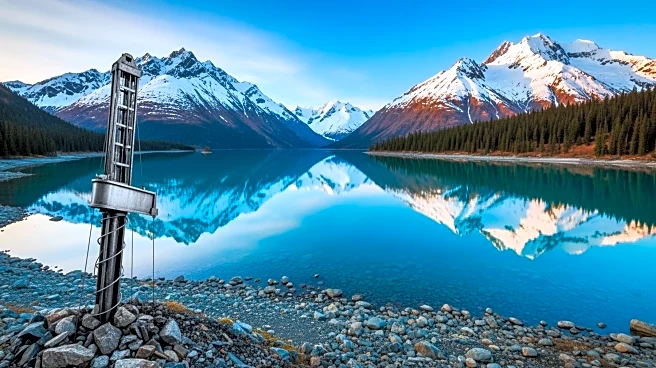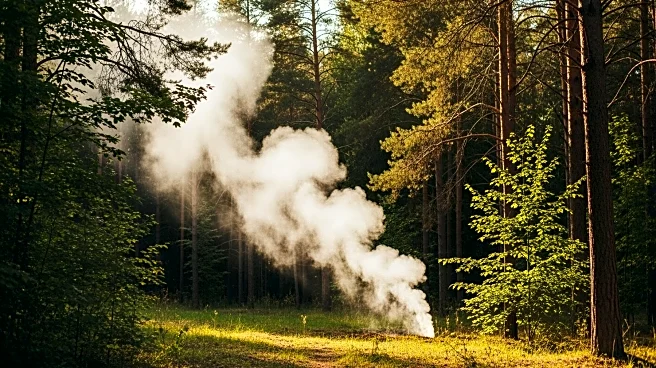What's Happening?
The Trump administration has finalized plans to open the coastal plain of Alaska's Arctic National Wildlife Refuge to potential oil and gas drilling. U.S. Interior Secretary Doug Burgum announced the decision,
which fulfills pledges made by President Trump and congressional Republicans to restore energy exploration in the Arctic region. The plan includes at least four lease sales over the next decade and a land-exchange deal to build a road through the Izembek National Wildlife Refuge, connecting King Cove and Cold Bay.
Why It's Important?
The decision to open the refuge to drilling has sparked a renewed debate over environmental conservation versus energy development. The Arctic National Wildlife Refuge is home to migratory caribou herds, polar bears, and millions of birds, and is considered sacred by the Indigenous Gwich'in. While proponents argue that the plan will boost economic growth and energy security, opponents warn of potential harm to fragile ecosystems and Indigenous communities. The move could lead to legal challenges from conservation groups and tribal leaders.
What's Next?
Conservationists and tribal leaders have vowed to challenge the decision in court, citing concerns over the impact on migratory birds and wildlife. The Center for Biological Diversity plans to contest the land exchange deal, which involves trading ecologically irreplaceable wilderness lands within the refuge for lands owned by the King Cove Corp. The legal battles could delay or alter the implementation of the drilling plans, and the outcome will be closely watched by environmentalists, Indigenous groups, and energy stakeholders.
Beyond the Headlines
The decision highlights the ongoing debate between conservation and development in resource-rich areas like Alaska. It raises ethical questions about balancing economic interests with the preservation of natural and cultural heritage. The move could set a precedent for future energy projects in protected areas, influencing policy decisions and public opinion on environmental conservation.








